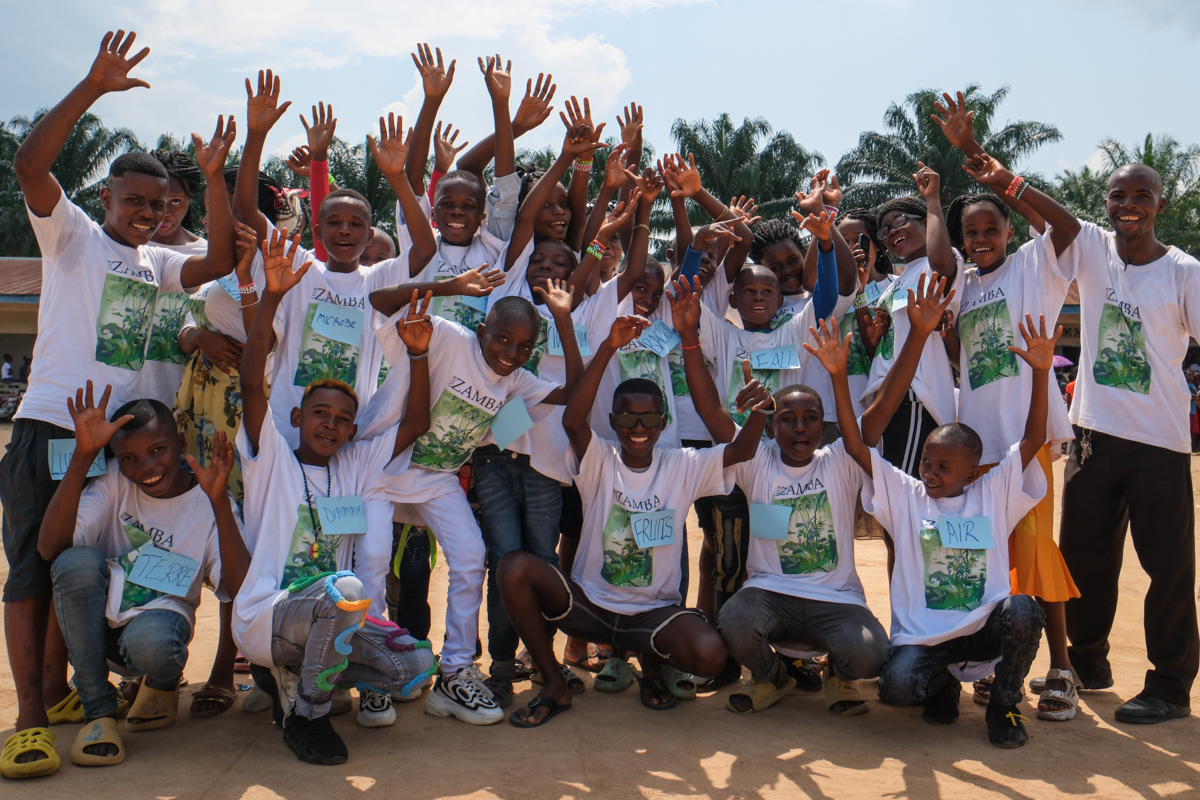Environmental Education through Zamba Clubs in the Yangambi Landscape

Since 2022, SO WILD, in collaboration with CIFOR, has been implementing a behavior change initiative aimed at promoting sustainable management of flora and fauna among the youth in the Yangambi landscape. Central to this initiative are the Zamba Clubs, established to enhance learning outside the formal school curriculum.
The clubs Zamba engage children in wildlife and forest issues through experiential learning and entertainment, fostering personal and social development. The clubs Zamba provide members with opportunities to acquire skills in wildlife management while having fun. A comprehensive manual Zamba has been developed for club leaders, featuring seven themes that emphasize the importance of flora and fauna in daily life. Through these themes, club Zamba members devise strategies to address local wildlife management challenges, sharing their solutions through theater performances. These performances, supported by Studio Kabako from Kisangani, often coincide with the announcement of student results, marking the end of the school year. The collaboration with Studio Kabako helps cultivate the artistic talents of clubs Zamba members while encouraging critical analysis of wildlife issues in their communities.
Participation in clubs Zamba is voluntary and free, requiring parental consent. Each year, students in grades 7 and 8 register to join their school’s club, gaining access to all activities. Members, aged 10 to 15, are encouraged to participate equally, regardless of gender, with each club limited to 15 participants. Meetings are held twice a month, following a schedule set by facilitators, with activities taking place either on school grounds or in nearby locations. Sessions typically occur on weekends from 8:00 a.m to 11:00 a.m, utilizing a citizen science and action science approach to empower children as agents of change in their communities. Since the inception of the clubs Zamba, 300 students have been trained across 20 clubs annually. Participating schools include Ngazi High School, Iyolo Agricultural Techniques High School, and others in the region. The Zamba members express their gratitude to Dr. Nathalie Van Vliet from CIFOR for initiating this impactful program, helping children gain valuable knowledge in sustainable management practices. This work would not have been possible without the financial support from USAID and the EU.

